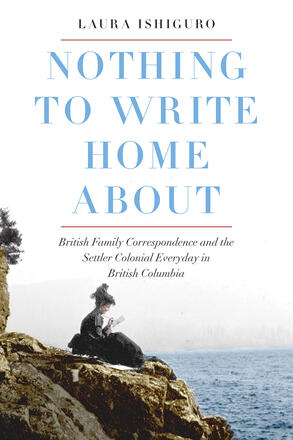
Nothing to Write Home About
British Family Correspondence and the Settler Colonial Everyday in British Columbia
Description
Nothing to Write Home About uncovers the significance of British family correspondence sent between the United Kingdom and British Columbia between 1858 and 1914. Drawing on thousands of letters, Laura Ishiguro offers insights into epistolary topics including familial intimacy and conflict, everyday concerns such as boredom and food, and what correspondents chose not to write. She shows that Britons used the post to navigate family separations and understand British Columbia as an uncontested settler home. These letters and their writers played a critical role in laying the foundations of a powerful settler order that continues to structure the province today.
Awards
- Commended, The Wilson Book Prize, McMaster University 2020
Reviews
"[...]seemingly disparate topics are interwoven with the central threads of settler colonialism and trans-imperial family relations to produce a cohesive and sophisticated analysis."
- Erin Millions
Laura Ishiguro has written a fine book. Her meticulous examination of colonial correspondence is engaging and illuminating. She displays a considerable sensitivity for the language used by white settlers to discursively claim British Columbia and normalise their presence there. Ishiguro is especially skilful in summarising her conclusions at the end of each chapter, fluently articulating the tangled voices of British settlers.
- Robert Hogg